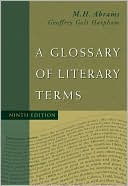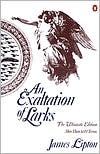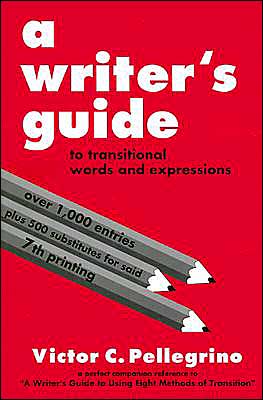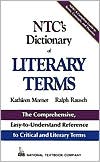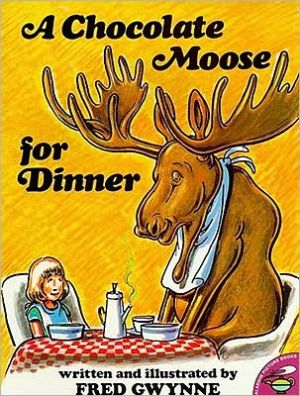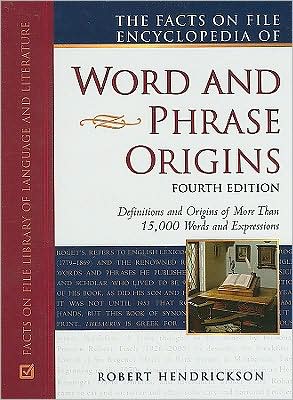Hog on Ice and Other Curious Expressions
He's as independent as a hog on ice!\ Where did expressions like this come from anyway?\ Now finally we'll know what "letting the cat out of the bag" or "going on a wild-goose chase" refers to. In this fun collection of more than 400 curious expressions and sayings, Dr. Funk explains the meanings that we use in everyday speech without even thinking about it. He has traced them back through the years — in some cases centuries — in an effort to determine their sources, to find out what the...
Search in google:
He's as independent as a hog on ice! Where did expressions like this come from anyway?Now finally we'll know what "letting the cat out of the bag" or "going on a wild-goose chase" refers to. In this fun collection of more than 400 curious expressions and sayings, Dr. Funk explains the meanings that we use in everyday speech without even thinking about it. He has traced them back through the years — in some cases centuries — in an effort to determine their sources, to find out what the original allusions were, or at the very least, to give us his expert opinion when facts cannot be traced.
In a Blue Funk\ It would be interesting if, through family records, I could bring an unsuspected source into view which would explain why this expression means "in a state of dire panic," or from another record determine why a stooge for an auctioneer, one who makes fictitious bids to stimulate higher bids, is called a "Peter Funk"; but, alas, nosuch records are known. An actual Peter Funk who thus served an auctioneer may have lived, in some part of the United States, but the unusually full record of the American family from 1710 to 1900 has no mention of such an individual. The English phrase, "in a funk," was Oxford slang back in the middle of the eighteenth century, and seems to have been borrowed from a Flemish phrase, "in de fonck siin," which also meant "in a state of panic"; but no one has been able to figure out why the Flemish fonck meant "panic." Perhaps some ancestor, for the early American branch spelled the name "Funck" and came from lands bordering the Flemings, may have lived in such panic that his name, slightly misspelled, became a synonym for great fear. No one can say.\ "Blue" was inserted into the phrase about a hundred years after the Oxford adoption. The adjective had long been used to mean "extreme," and its addition merely intensified the state of panic ascribed to the phrase.\ Incidentally, the first literary mention of the mythical "Peter Funk" is in the book by Asa Green, The Perils of Pearl Street, published in 1834. The book is a humorous narrative of mercantile life in New York City and, obviously, the author invented the names of most of the characters he describes. Possibly this name was also invented, though theauthor says that Peter Funk was a name familiar to generations of merchants.\ To Put the Kibosh On\ To put an end to; to stop; to dispose of. One thinks of this as being modern slang, in use only a few years, but readers of Dickens, if they remember Sketches by Boz, may recall the sketch, "Seven Dials." This is a description of a squalid locality in London, so benighted that even the "ladies" were usually engaged in fisticuffs. One such battle was egged on by a young potboy, who, as Dickens wrote it, roared to one of the "ladies," "Hooroar, put the kye-bosk on her, Mary!" That sketch was published back in 1836, so our "modern slang" is somewhat more than a hundred years old.\ There has been considerable speculation about the origin of the word "kibosh." A correspondent to Notes & Queries some years ago advanced the theory that it was of Yiddish origin meaning eighteen pence, and began as a term used in auctions, as an increase in a bid. Recently, another correspondent to the same publication suggested that it may be a corruption of the Italian capuce, a tin lid, and that it may have been employed by street vendors of icecream -- "Put the kibosh on," meant to put the lid back on the container.\ But I am indebted to Padraic Colum, well-known Irish author, for what I take to be the true explanation. In a letter to me he says: "'Kibosh,' I believe, means 'the cap of death' and it is always used in that sense -- 'He put the kibosh on it.' In Irish it could be written 'cie bais -- the last word pronounced 'bosh,' the genitive of 'bas,' death."\ To Knock (or Beat) the Tar Out Of\ We use this with the meaning, to beat, whip, or belabor without mercy. Though credited to the United States and with no earlier record of use than the twentieth century, I think it likely that the expression may have been carried to this country by some Scottish or north-of-England sheepherder who may have used it in a literal sense. Many centuries ago it was learned that a sore on a sheep, as from an accidental cut in shearing, could be protected against the festering bites of flies if smeared with tar. In fact, back in 1670, the proverb is recorded by John Ray, "Ne're lose a hog (later, a sheep) for a half-penny-worth of tarre." But when tar once gets embedded into a sheep's wool, its removal is difficult. So I surmise that our present saying was first used in its literal sense, to beat a sheep's side for the removal of tar.\ Hell-Bent for Election\ "Hell-bent," an American term, means so determined as to be regardless of the consequences, even hell itself. An article in Knickerbocker Magazine in an issue of 1835 describes a band of Indians as "hell-bent on carnage." The present "all out" is a mild substitute for the same thing. But "hell-bent for election" means speed, speed so great as to be heedlessly reckless. The meaning seems to be derived from the political race made by Edward Kent, in 1840, for election to the governorship of Maine. He was a Whig, and, though Maine was then normally Democratic, he had served as governor for one term, had been defeated for re-election by John Fairfield, and was again running against Fairfield in 1840. The Whigs were determined to win; they were "hell-bent for the election" of Kent and probably used that slogan in the campaign, for their victory was celebrated by a song that ran, in part:\ Oh have you heard how old Maine went?\ She went hell-bent for Governor Kent,\ And Tippecanoe and Tyler, too!\ \ \ Spick and Span\ For the past two hundred years we have been using this to mean very trim and smart, thoroughly neat and orderly, having the appearance of newness, but for the two hundred years preceding that, or from the middle of the sixteenth century to the middle of the eighteenth century, the phrase was always "spick and span new," and had no other meaning than absolutely and wholly new.\ A Hog on Ice. Copyright © by Charles E. Funk. Reprinted by permission of HarperCollins Publishers, Inc. All rights reserved. Available now wherever books are sold.

